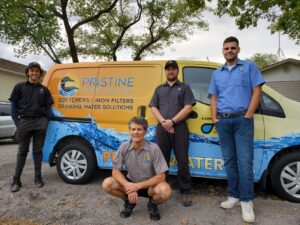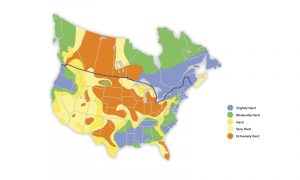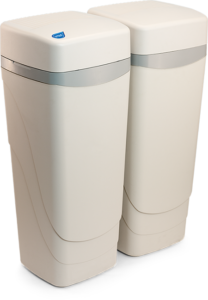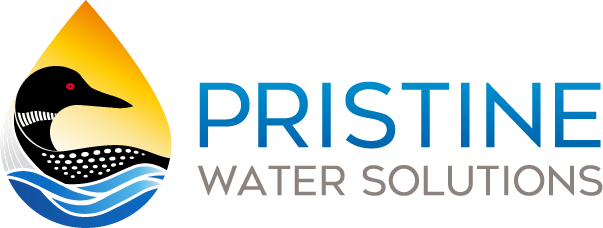Better Water for Rural Manitoba
Article appeared in the 23 September 2021 issue of The Selkirk Record. Written by Ligia Braidotti
Pristine Water Solutions gives customers crystal clear water
A new local business can turn rural residents’ water into one of the purest in the region.
Pristine Water Solutions is bringing one of the top water treatment products made in the United States to Manitoba. This will provide residents with better ways to get quality water from their homes.
How We Started
In his many visits to a friend living in the United States, co-owner Bill Marr would be amazed at the water at that friend’s home. So when he purchased land and began preparing to build his own house in Selkirk, he approached his friend for the source of his quality water.
Marr had to go all the way to Regina, Sask. to find the right equipment and product to treat his water.
“So I started thinking, we have to go all the way here, and this is one of the top water treatment companies in the United States. And they’re not even available in Manitoba, maybe there’s a business opportunity,” Marr said.
Thus was born Pristine Water Solutions, a family business committed to offering clients solutions to achieve high-quality water. Marr, his son Sebastian, and sons-in-law David Lamoureux and Mason Kellett are the faces behind the company.

Pristine Water Solutions Team
“The water industry is very interesting because a lot of people think that water is water, but water has characteristics that vary tremendously. It depends on where you get it from and what the source of the water is. So it’s going to be an interesting challenge to build a business helping people improve the quality of their water, and improving the quality of their lives,” Marr said.
Pristine Water Solutions is the exclusive dealer for Hague Quality Water products in Manitoba and northwestern Ontario.
Manitoba and Hard Water
Manitoba is blessed with an abundance of water, but it also has some of the hardest water in the world, Marr explained. Hard water is not harmful; in fact, it has many benefits, such as fulfilling people’s needs for minerals such as calcium and magnesium. However, it can be very damaging to homes in terms of its appliances and plumbing systems.

Hard Water in Manitoba and NW Ontario
“Especially those of us who live in the rural parts of the province, reducing the mineral content is very important to the quality of your home’s longevity. But there’s also an aesthetic standpoint with water. If you use soft water, your hair feels better, your skin feels better. So some of the people with whom we’ve installed equipment already have noticed very big differences in the quality of their water both for drinking and for showering and use in the kitchen,” Marr said.
Hague WaterMax

WaterMax
The most common strategy for reducing hard water is using a water softener, like the Hague WaterMax. Marr explained that water softeners use an ionic exchange to flush minerals out of the system and puts it into wastewater. The resin beads inside the water softener trap all of the hardness of the water and turn it into soft water.
Marr also explained that most people living in rural areas have hard or extremely hard water. Removing it with a water softener is just the first step. There are other factors that people need to consider when treating water.
“Depending on where you are, you could have issues with iron or sulfur. You can have varying pH levels in your water. Because of farming operations, you could have chemical runoff into your water supply, including nitrates. If you have a well, you could have bacteria in it…and the only way to treat it in the long-term is to use ultra-violet filtration to kill the bacteria that come into your home,” he continued.
Water and Your Health
Marr, who has a lifelong passion for health, said that most people don’t realize there are so many chemicals in water, such as pharmaceuticals, that escape the treatment process. However, a reverse osmosis system can trap and filter out much of the harmful products and chemicals present in water.
“There are a number of factors at play because you have the whole chemical situation of what could be in your water —the chlorine, the fluoride, and those types of chemicals. But then there’s the issue: if you don’t drink tap water, what’s your alternative? So a lot of people buy bottled water — and a lot of those bottles end up in the landfills. And how much plastic is leached into the bottled water you’re drinking? There’s a lot to it,” Marr said.
To learn more about Pristine Water Solutions or to request a FREE home water test, go to pristinewater.ca.
